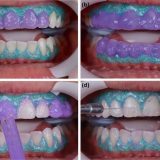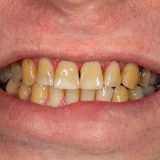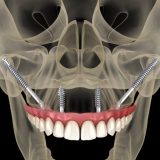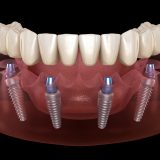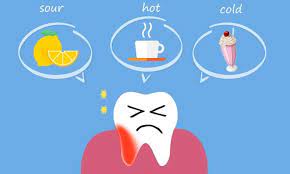
OUTLINE
Introduction
What is it?
Causes
Symptoms
Treatment
Conclusion Magizhchi dental
Are you one of the many individuals who wince in pain while sipping on a hot cup of coffee or indulging in a scoop of ice cream?
If so, you may be experiencing teeth sensitivity, a common dental issue affecting millions worldwide.
In this blog post, we’ll delve into the causes, symptoms, and treatment options for teeth sensitivity to help you better understand and manage this uncomfortable condition.

What is Teeth Sensitivity?
Teeth sensitivity, also known as dentin hypersensitivity, is characterized by a sharp, sudden pain or discomfort in the teeth when exposed to certain stimuli, such as hot, cold, sweet, or acidic foods and beverages, as well as cold air or brushing and flossing.
This sensitivity occurs when the protective enamel layer of the teeth wears down, exposing the underlying dentin and nerve endings.
Causes of Teeth Sensitivity:
Several factors can contribute to the development of teeth sensitivity, including:
Enamel Erosion: Over time, enamel erosion due to factors like acidic foods and beverages, aggressive brushing, or conditions like acid reflux can lead to thinning of the enamel, exposing the dentin.
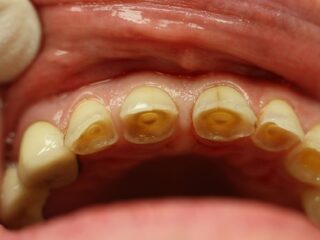
Gum Recession: Receding gums, often caused by gum disease or vigorous brushing, can expose the tooth roots, which are not covered by enamel and are more sensitive to external stimuli.
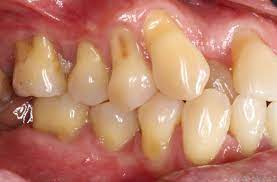
Dental Procedures: Some dental treatments, such as teeth whitening, tooth restoration, or orthodontic procedures, can temporarily increase teeth sensitivity.
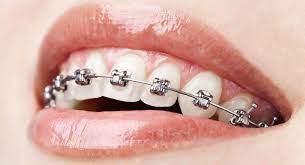
Cracked Teeth: Cracks or fractures in the teeth can expose the sensitive inner layers, leading to sensitivity.
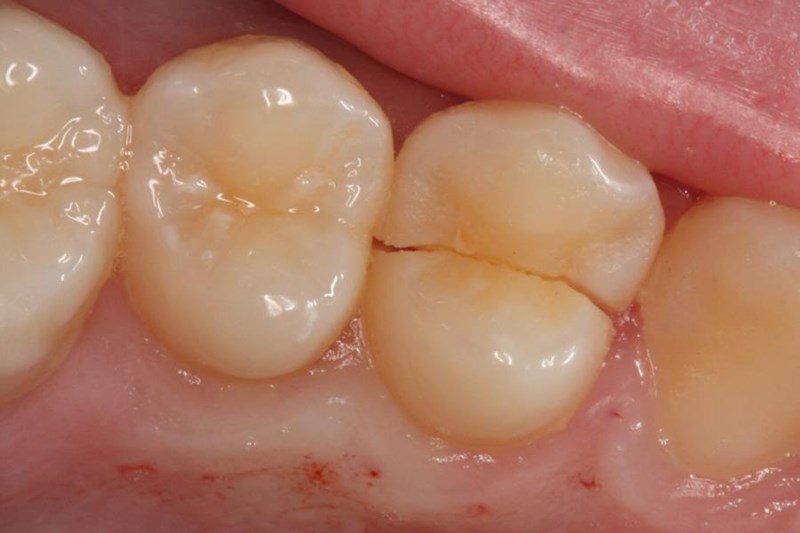
Tooth Decay: Cavities and tooth decay can cause sensitivity when they reach the inner layers of the tooth.
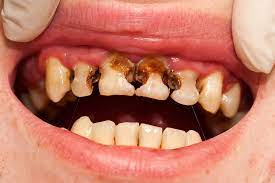
Symptoms of Teeth Sensitivity:
The most common symptom of teeth sensitivity is a sudden, sharp pain or discomfort in the teeth when exposed to hot, cold, sweet, or acidic substances. Other symptoms may include:
- Pain or discomfort while brushing or flossing
- Pain when breathing in cold air
- Discomfort while biting or chewing
- Sensitivity to temperature changes
Magizhchi tooth care and implant center

Treatment Options for Teeth Sensitivity:
Fortunately, there are several treatment options available to help alleviate teeth sensitivity and improve oral comfort:
Desensitizing Toothpaste: Specialized toothpaste containing ingredients like potassium nitrate or fluoride can help block nerve signals and reduce sensitivity over time.

Fluoride Treatment: Professional fluoride application by a dentist can strengthen the enamel and reduce sensitivity.
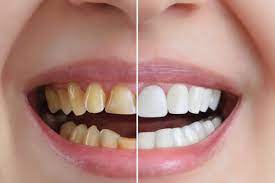
Dental Bonding: In cases of severe sensitivity, your dentist may apply a tooth-colored resin to cover exposed dentin and protect the tooth surface.
Gum Grafting: If gum recession is the cause of sensitivity, a gum graft procedure can cover exposed tooth roots and reduce sensitivity.
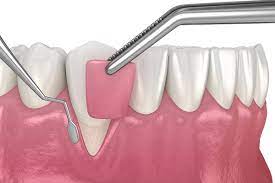
Avoiding Triggers: Limiting consumption of acidic, sugary, or hot and cold foods and beverages can help minimize sensitivity.
Magizhchi tooth care and implant center

Proper Oral Hygiene: Maintaining good oral hygiene practices, including gentle brushing with a soft-bristled toothbrush and regular flossing, can prevent further enamel erosion and sensitivity. Proper brushing technique.
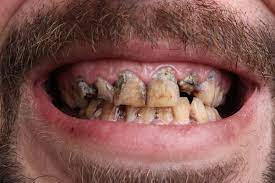
Conclusion:
Teeth sensitivity can significantly impact your quality of life, making everyday activities like eating and drinking uncomfortable.
However, with proper understanding of the causes, symptoms, and treatment options, you can effectively manage this condition and enjoy a pain-free smile.
If you’re experiencing teeth sensitivity, don’t hesitate to consult with your dentist to determine the best course of action for your individual needs. Remember, a healthy smile starts with proactive dental care!
Frequently asked questions
- Is teeth sensitivity a common dental issue?
Yes, teeth sensitivity is a prevalent dental problem experienced by a significant number of people. It can occur at any age and affect anyone, although it tends to be more common in adults.
- What are the common triggers for teeth sensitivity?
Teeth sensitivity can be triggered by various factors, including hot or cold foods and beverages, sweet or sour foods, cold air, and even brushing or flossing.
- Can teeth sensitivity indicate a more serious dental problem?
In some cases, teeth sensitivity may be a symptom of an underlying dental issue, such as tooth decay, gum disease, or enamel erosion. It’s essential to consult a dentist to determine the cause and appropriate treatment.
- How can I manage teeth sensitivity at home?
There are several steps you can take to alleviate teeth sensitivity at home, such as using desensitizing toothpaste, avoiding acidic foods and drinks, practicing proper oral hygiene, and using a soft-bristled toothbrush.
- When should I see a dentist about teeth sensitivity?
If you experience persistent or severe teeth sensitivity that doesn’t improve with home remedies, it’s important to schedule an appointment with a dentist. They can assess your oral health, identify any underlying issues, and recommend appropriate treatment options.
We hope this blog post has been informative and helpful in addressing your concerns about teeth sensitivity. Stay tuned for more valuable insights and tips on maintaining optimal oral health!


